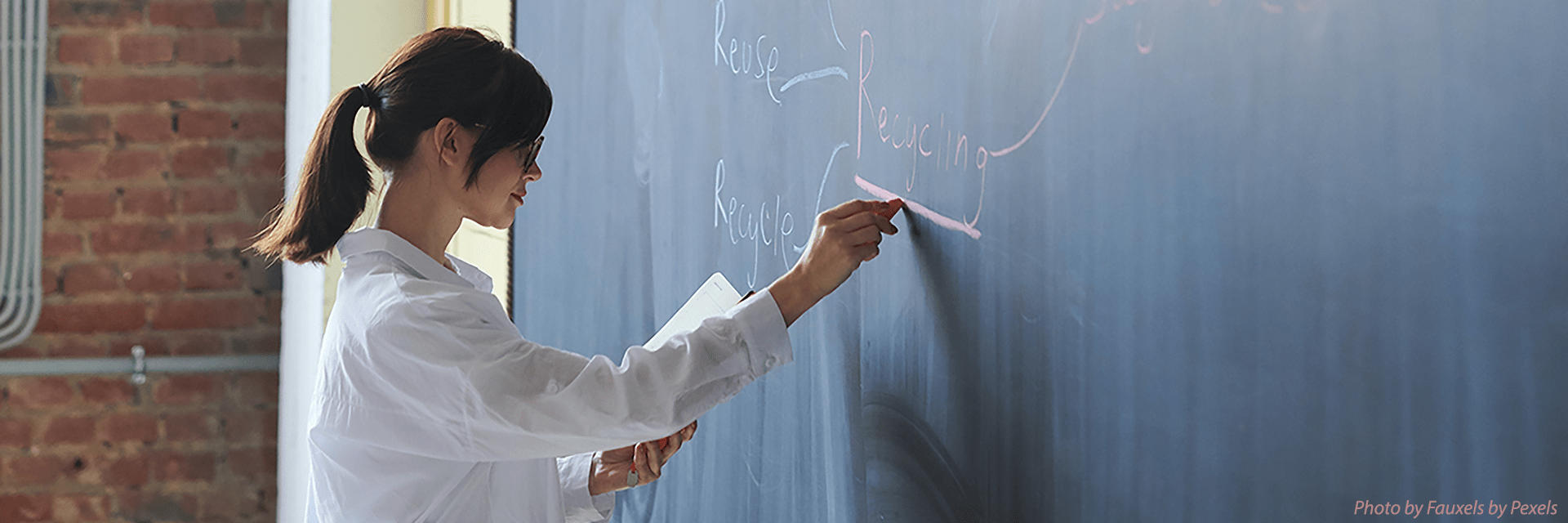Compassion and Connection
Compassion and connection can help ease students’ difficult transition to college life. Most undergraduates experience academic difficulties, loneliness, and anxiety at some point during their college years. Compassionate instructors who support students make the transition easier, which leads to higher grades, higher graduation rates, and lower symptoms of psychopathology (Mikami et al., 2018).
Showing compassion is essential in teaching because many students carry personal challenges and experiences that may not be immediately visible. Life circumstances and past traumas can impact a student’s ability to engage fully in the classroom. Trauma can lead to low self-esteem, anger, disassociation, and hopelessness, all of which negatively affect a student’s ability to learn (Hannegan-Martinez, 2019). It is easy for an instructor to view an angry or unmotivated student with a deficit narrative, thinking there is something wrong with the individual, but it is important to remember the traumatic circumstances that may be behind such behaviors.
Flexibility
Flexibility is one way to show care to students experiencing trauma and uncertainty. It is easy to become more rigid in the face of uncertainty to attempt to assert control (Ellis, 2020). Instead, give flexibility (within reason) on assignments, deadlines, etc. Consider replacing or modifying stressful, high stakes exams with alternative assessments, which can ease stress but still allow students to demonstrate their mastery of learning outcomes.
Inclusivity
Inclusive and encouraging classrooms help students feel comfortable and successful (Alcott, 2017; Locke & Trolian, 2018). Take time to have discussions about difficult but timely topics when they arise (Slakmon & Schwarz, 2019). Designate class time to discuss and model study strategies and stress management strategies, which help students succeed and feel supported (Machera & Machera, 2017).
Self-Compassion
Self-compassion is important to prioritize. Students perceive when their instructors are burned out, stress, or disengaged (Oberle et al., 2020). It can be difficult to balance different professional and personal responsibilities. Remember to care for yourself before you care for others, and take advantage of available campus resources for support.
Student-to-Instructor Connections
Student-to-instructor connections can lead to higher:
- engagement
- positive attitudes
- satisfaction
- positive mental health outcomes
- self-regulation
- academic achievement
- motivation
- confidence
(Freeman et al., 2007; Oberle et al., 2020)
Student-to-Student Connections
Student-to-student connections lead to lower stress and higher grades, even when the connections are virtual (Mikami et al., 2018). Instructors can foster these relationships in their courses to help students feel at-home within the larger campus community.
Build relationships by thinking of students as partners in their own learning. Help connect them to student resources when necessary.
The most effective relationship-building strategies are to:
- encourage participation
- be enthusiastic, friendly, and helpful
- be organized and prepared
(Freeman et al., 2007)
Help students build relationships by using active learning strategies that promote collaboration. Providing opportunities for classmates to exchange contact information. Try allowing a few minutes at the beginning or end of class to discuss outside topics.
References
Ellis, W. (2020, August 19). It’s compassion, not capitulation, to ask less of students amid disruption. Inside Higher Ed. https://www.insidehighered.com/advice/2020/08/19/it%E2%80%99s-compassion-not-capitulation-ask-less-students-amid-disruption-opinion
Freeman, T. M., Anderman, L. H., & Jensen, J. M. (2007). Sense of belongingness of college freshmen at the classroom and campus levels. Journal of Experimental Education, 75, 203–220.
Hannegan-Martinez, S. (2019). From punk love to compa love: A pedagogical paradigm to intervene on trauma. The Urban Review 51, 659-675. https://doi-org.proxy-um.researchport.umd.edu/10.1007/s11256-019-00540-3
Locke, L. A. & Trolian, T. L. (2018) Microaggressions and social class identity in higher education and student affairs. New Directions for Student Services 162, 63-74. https://doi-org.proxy-um.researchport.umd.edu/10.1002/ss.20262
Machera, R. P. & Machera, P. C. (2017). Emotional intelligence (EI) A therapy for higher education students. Universal Journal of Educational Research 5(3), 461-471. https://doi.org/10.13189/ujer.2017.050318
Mikami, A. Y., Szwedo, D. E., Khalis, A., Jia, M., & Na, J. J. (2018). Online social interactions predict academic and emotional adjustment in the transition to university. Journal of Research on Adolescence 29(1), 210-224. https://doi.org/10.1111/jora.12377
Oberle, E., Gist, A., Corray, M. S., & Pinto, J. B. R. (2020). Do students notice stress in teachers? Associations between classroom teacher burnout and students’ perceptions of teacher social-emotional competence. Psychology in the Schools 57(11), 1741-1756. https://doi-org.proxy-um.researchport.umd.edu/10.1002/pits.22432
Slakmon, B. & Schwarz, B. B. (2019). Deliberative emotional talk. International Journal of Computer-Supported Collaborative Learning 14, 186-217.

